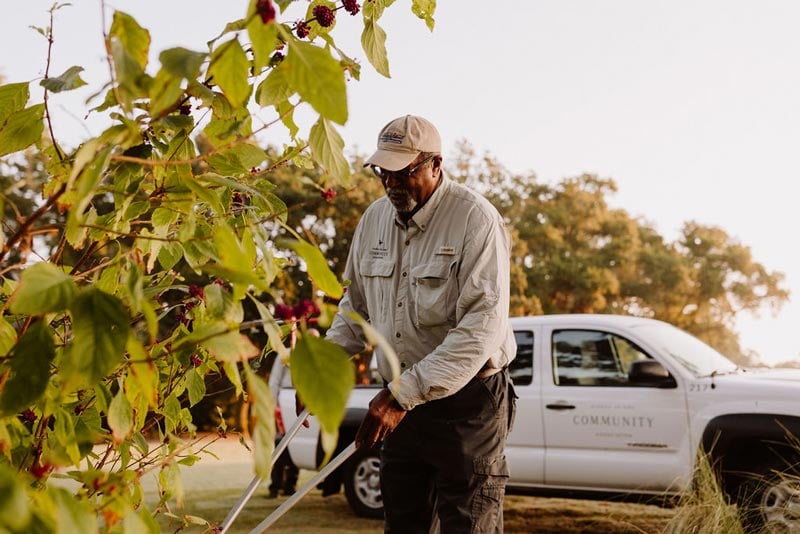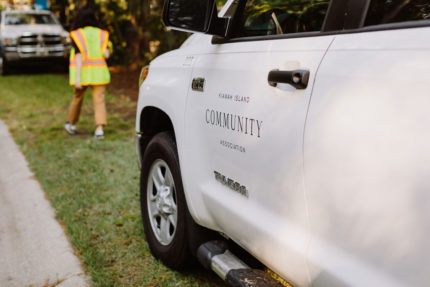Mar
06
2010
From The Blog
Meet Chuck Davis And The Finance Committee
The KICA Finance Committee (FC) provides the board, in the words of committee chair Chuck Davis, with “perspective and financial advice on all financial matters of concern to KICA.” The committee’s duties include budget development and oversight, long-term financial planning, and short-term financial investment.
KICA’s funds come primarily from two sources, annual assessments on property and a Contributions to Reserves Fee generated by each Kiawah real estate transaction. The former funds the annual budget and the latter funds the major repair and replacement (MRR) fund for capital projects, including new construction and repair or replacement spending.
The monthly meetings of the FC are well attended. The association Treasurer Paul Hilstad, Chief Operating Officer Joe Bunting, and Controller Deborah Retalis attend every meeting, and the six or seven volunteer members, both full and part-time residents, usually attend in person or by phone when they are away. Some volunteer members serve on the committee for many years.
Chuck stresses Deborah and Joe’s importance: “Deborah is the vice chair of the committee and the person who puts all the numbers and budgets and the meeting agendas together. Joe is the link between the board and everyone else. His input is valuable and we need him.”
The volunteer members, according to Chuck, “are people who like to look at financial statements, who tend to like doing things that many people prefer not to do. The most important skill is the ability to read and understand financial statements. Knowledge and experience in short-term investment also helps us to run the investment portfolio.”
Chuck is that type of person, with a heavy finance and banking background. His first job after earning his bachelors and masters degrees in finance was as a finance officer in the army. He liked the work. “I was a round peg in a round hole,” he remarks. For the next 31 years, he studied corporate financial statements for a Chicago bank that specialized in corporate lending, spending 15 of those years as a senior lending officer and seven as head of risk management. “After that, KICA’s financial picture was not hard to understand,” he says.
Chuck explains the FC’s responsibilities. “We have two major tasks, budgeting and short-term investments. Regarding budgeting, the operating and MRR budgets are combined into one, but we spend more time on MRR because that’s where our input is needed more.” Staff members prepare the budget and present it to the FC each fall. The committee acts as a sounding board, giving feedback and recommending adjustments. For Major Repairs Committee projects such as new or existing bridges, culverts, leisure trails and roads, “MRR people know the engineering and physical aspects of the projects and they forecast repairs and maintenance 10 years out. They prioritize the projects and determine the costs, usually through bids, and the timetable. We look at their recommendations and in turn we make the funding recommendations to the board,” says Chuck.
Each month the FC reviews the previous month’s financial statements and they “look at how we are moving relative to the budget,” explains Chuck. “We discuss any new issues that have come up and deal with any surprises or adjustments, for instance if something broke that we didn’t anticipate, we have to decide how to juggle the funding. But we only make recommendations. We’re an advisory committee.” Because of the dearth of real estate transactions in the past two years, KICA’s reserve fund, funded by transfer fees, has shrunk a little. Chuck explains, “We took in about a million dollars last year, but in good times it was as high as $3 million. Everyone involved, the Finance Committee, the board and staff, agreed to allow reserves to come down a bit. Most people thought there was enough flexibility to do that, but after this year we will have gone as far as we can. So far it’s working the way it should, though, building up in the fat years and drawing down in leaner years.”
The shrinking fund has forced the association to make some difficult decisions about project funding. “For example, for two years we have had to defer the pedestrian bridge over Cinder Creek,” he says, “but it is important from a safety point of view and we have been trying to find the money. It is now scheduled to start this year and end next year, with 50% of the $850,000 funded in each of the two years.” He adds, “We have still been able to do what we need to do on the island, but we have less margin for error now.”
The FC’s second major task is managing the short-term investments. Chuck explains, “KICA takes in a lot of cash in January and February from assessments, and this funds all of the operating costs for the year. That money is needed monthly for the rest of the year, so it needs to be invested during the months it isn’t needed. In addition, the reserve fund for major repairs and replacement increased over the years to many millions of dollars that also need to be invested. We tend to keep all investments short for safety and flexibility, although if we have any long-term investments, the reserve fund is where they will be.” For several years, FC members Charlie Larsen and Chris Dahlstrom provided the FC with expertise in short-term investments, and the board seeks month-to-month expertise from the FC. The board considers changes to the short-term investment strategy when the FC recommends changes in the type of investments it is making.
Background
Chuck made his way to Kiawah after him and his wife Karen bought a lot in 1997. They built a house and moved to Kiawah full-time in 2001. They had been considering retirement options and had seen other places in the southeast. They came out to Kiawah for a visit when they were in Charleston one day, after hearing about the island from friends.
Two and a half years ago, Chuck asked his friend Charlie Larsen, already a longtime member of the FC, about serving on it. Charlie directed Chuck to Joe Bunting, and Joe snapped him up. Chuck was a committee member for only a year before assuming the chairmanship when the current chair decided to step down. He has served as chair for a year.
Chuck also continues to serve on the board of the Kiawah Conservancy, where he has been actively involved for most of his time in Kiawah. He finds time to relax as well. “I’m a golfer, and I also love to walk the beach. I enjoy being retired and dealing with my four grandchildren,” who aren’t able to come to Kiawah from Chicago quite as often as Chuck would like.

